“I want to read the best translation of Les Miserables!”
So you want to read Victor Hugo’s phenomenally successful novel about the Paris Uprising of 1832, perhaps because you are interested in French literature, or perhaps because you are a fan of the long-running musical. But you don’t read French. Or you know a bit of French from high school, but not, like, nearly enough.
Not a problem.
English translations have been available since 1862, the year the original was published. There are four English translations in the public domain and another four published in the last fifty years.
Keep reading to learn how to choose an edition that’s right for you.
Les Miserables: Translation History
There are eight English translations of Les Miserables, shown below in chronological order.
- 1862 – Charles E. Wilbour
- 1862 – Lascelles Wraxall
- 1863 – Wilbour revised by A.F.
- 1887 – Isabel Florence Hapgood
- 1976 – Norman Denny
- 1987 – Wilbour revised by Lee Fahnestock and Norman MacAfee
- 2007 – Julie Rose
- 2013 – Christine Donougher
Below are details about each of these English translations.
Les Miserables: Translation Comparison
Below I have included excerpts of the same passage from all eight translations so that you can compare what the translators’ language sounds like.
“Is Les Miserables the world’s Longest novel?”
The Guinness Book of World Records gives the honor to Marcel Proust’s In Search of Lost Time (aka Remembrance of Things Past), which is over a million words; Les Miserables is less than 600,000.
Still, opinions are divided according to how length is measured and what is considered a novel. Long, monolithic Asian works, which may be as long or longer when translated into English, include The Plum in the Golden Vase; the Four Classic Chinese Novels: The Dream of the Red Chamber, Water Margin (aka Outlaws of the Marsh), Journey to the West, and The Romance of the Three Kingdoms; and The Tale of Genji.
“Should I read an abridged version of Les Miserables?”
Lee Fahnestock, in his introduction to the 1987 unabridged Signet Classics edition, naturally advises against it.
While several abridged editions exist in English, that expedient seems a mistake. It is almost impossible to predict the individual detail, the flashing image or human quirk precisely observed, that will burn its way into a reader’s mind for good. The sound solution is to honor the author’s wishes (xii).
Personally, I agree, and I like how long books give the reader time and space to immerse himself or herself in not just the characters and plot but also the setting, style, and themes. But long books take time and focus that you might legitimately want to spend on something else.
If you’re intimidated by long books and mainly interested in seeing what happens to the characters in this famous story, then you’re better off with an abridged edition.
The Denny edition, as a kind of compromise, moves two of Hugo’s longer digressions (Part 2, Book 7 and Part 4, Book 7) to the end of the book as appendices, leaving the overall numbering intact.
Some of the famous digressions describe:
- Bishop Myriel (Part 1 Book 1)
- The Battle of Waterloo (Part 2 Book 1)
- a convent (Part 2 Book 7)
- street urchins of Paris (Part 3, Book 1)
- criminal slang or ‘argot’ (Part 4, Book 7)
- the Paris sewers (Part 5, Book 2)
Abridged editions leave out some chapters and also streamline the text within the chapters they retain.
All the abridged editions seem to be abridgements of the original Wilbour translation.
“What are the differences between Les Mis the novel and Les mis the musical?”
The musical differs in that it’s extremely condensed compared to a 1,000-page book. Its duration is about 3 hours. An unabridged audiobook is 58 to 68 hours!
And if you thought the story was about the French Revolution (1789–1799) and not the Paris Uprising of 1832, you’re not alone. The musical is ambiguous, possibly even misleading. When Hugo’s son adapted the novel for the stage, it didn’t matter to him as much exactly what the specific conflict was, just that there was one, so some of the historical details were obscured or changed.
In “The Legacy of ‘Les Miserables’”, Tobias Grey says the stage musical damages and deforms the original story by making the dishonest innkeepers into comic characters. Um. Okay. I guess you could look at it that way. But I don’t think I’d want to watch a musical in which the dishonesty wasn’t tempered by comedy. The book is pretty dark; I’m okay with the musical being lighter.
“Who Was Charles Edwin Wilbour?”
He was an American Egyptologist who left behind a large collection of books, letters, notebooks, and other records which are now housed in the Brooklyn Museum. He completed his translation of Les Miserables in New York before leaving the United States in 1874 to pursue his interest in Egyptian antiquities.
About the Wilbour translation of Les Miserables
The Wilbour translation is the basis of the unabridged 1987 version available from Signet Classics, edited by Fahnestock and McAffee. In other words, in terms of quality, it has been superseded. I feel like the only reason you’d read the Wilbour translation is if you reflexively bought the first cheap paperback to cross your path… which is what I did.
- It is available free because it is no longer under copyright.
- It was produced in six months and published in the same year as the original.
- It was the basis for a pirated version published in 1863 in the Confederate States of America.
- It uses an old style of English and tries to capture the flavor of the original by retaining French word order—or actual French words and sentences.
- Marva Barnett: “Which translation of Les Miserables do you recommend?” by Marva Barnett
“[It is] generally considered quite faithful to Hugo’s original but sounding dated in ways that Hugo’s novel does not. Some readers like Wilbour’s style.”
Extract from the Wilbour translation of Les Miserables
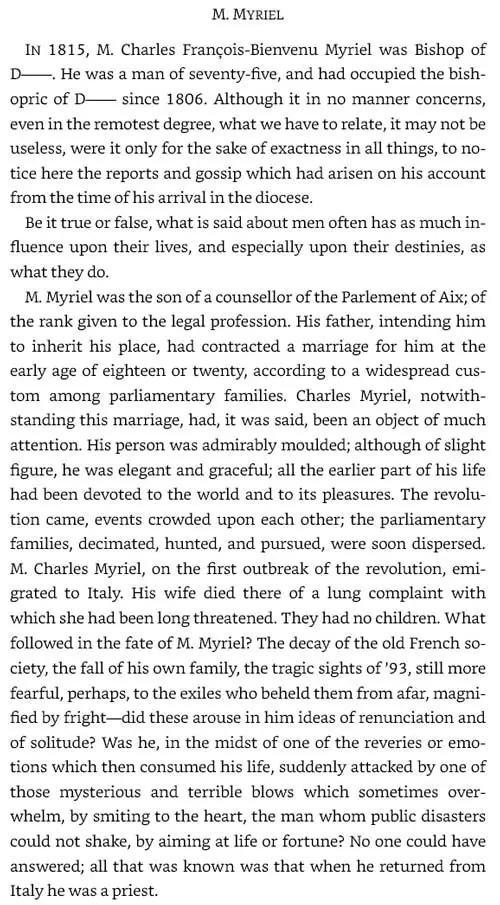
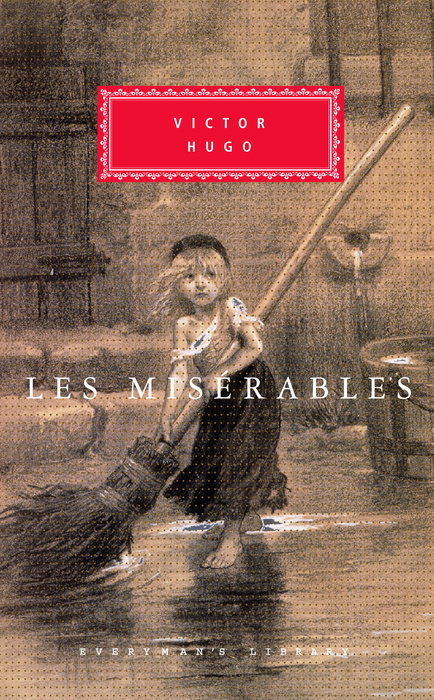
Get the Everyman's Library Wilbour translation of Les Miserables
Introduction by Peter Washington.
Available as a hardcover (ISBN 9780375403170, 1480 pages).
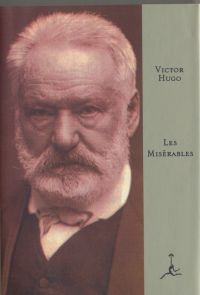
Get the Modern Library Wilbour translation of Les Miserables
"This edition is the classic English translation of Hugo's friend Charles Wilbour, which appeared the same year the novel was published in France."
Available as an ebook (ISBN 9780679641551, 1280 pages).
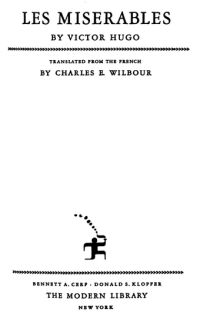
Get the Modern Library Wilbour translation of Les Miserables
Browse or search a scan of the Modern Library edition online for free.
Available as a scan.

Get the Wordsworth Classics Wilbour translation of Les Miserables
Volume One. Includes an Introduction and notes by Roger Clark.
Available as a paperback (ISBN 9781853260858, 528 pages).

Get the Wordsworth Classics Wilbour translation of Les Miserables
Volume One. Includes an Introduction and notes by Roger Clark.
Available as a paperback (ISBN 9781853260506, 512 pages).

Get the Wordsworth Classics Wilbour translation of Les Miserables
Volume One. Includes an Introduction and Notes by Roger Clark.
Available as an ebook (ISBN 9781848704435).

Get the Wordsworth Classics Wilbour translation of Les Miserables
Volume Two. Includes notes by Roger Clark.
Available as an ebook (ISBN 9781848704442).
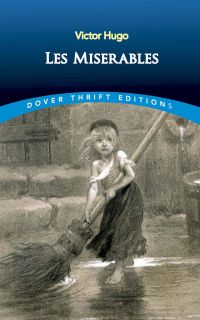
Get the Dover Wilbour translation of Les Miserables
The cover features an 1862 illustration of Cosette by Emile Bayard from the original French book. "This Dover edition, first published in 2018, is an unabridged republication in one volume of the work originally published in 1887 by Thomas Y Crowell & Company, New York."
Available as a paperback (ISBN 9780486822181, 1376 pages).
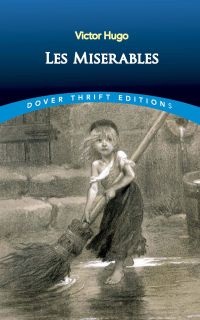
Get the Dover Wilbour translation of Les Miserables
The cover features an 1862 illustration of Cosette by Emile Bayard from the original French book. "This Dover edition, first published in 2018, is an unabridged republication in one volume of the work originally published in 1887 by Thomas Y Crowell & Company, New York."
Available as an ebook.

Get the Ballantine Wilbour translation of Les Miserables
ABRIDGED. Abridged by James K. Robinson. Includes an introduction by James K. Robinson.
Available as a paperback (ISBN 9780449911679, 336 pages).

Get the Fawcett Wilbour translation of Les Miserables
ABRIDGED. Abridged by James K. Robinson. Includes an introduction by James K. Robinson.
Available as a paperback (ISBN 9780449300022, 416 pages).
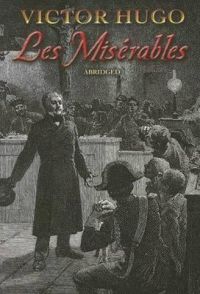
Get the Dover Wilbour translation of Les Miserables
ABRIDGED. Abridged by James K. Robinson.
Available as a paperback (ISBN 9780486457895, 304 pages).
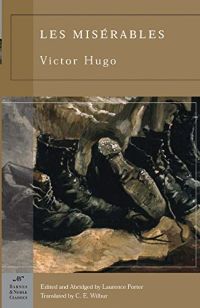
Get the Barnes and Noble Classics Wilbour translation of Les Miserables
ABRIDGED. Edited and abridged by Laurence M. Porter. Includes a list of memorable quotes, a biography, a chronology, an introduction, a note on the abridgement, endnotes, discussions of adaptations of the work, discussion questions, and suggestions for further reading.
Available as a paperback (ISBN 9781593080662, 896 pages).

Get the Enriched Classics Wilbour translation of Les Miserables
ABRIDGED. Abridged by Paul Bénichou. Supplementary materials written by Margaret Brantley. These include: an introduction, a chronology of Victor Hugo's Life and Work, Historical Context of Les Miserables, notes, interpretive notes, critical excerpts, questions for discussion, and suggestions for the interested reader. Cover art by Marco Ventura.
Available as a paperback (ISBN 9781416500261, 656 pages).

Get the Macmillan Collector’s Library Wilbour translation of Les Miserables
ABRIDGED. Abridged by Douglas Gordon Crawford. "This abridged version of Victor Hugo's masterpiece was published in 1915 with the aim to provide 'a unified story of the life and soul-struggles of Jean Valjean'." From the introduction by Paul Bailey: "This edition... dispenses with Hugo's reflections on the history of his beloved country, the architectural redesigning of Paris, the futility of the monarchical system, convents, sewers, religion and politics. What remains constitutes a deeply satisfying and rewarding novel. In this form, the characters and the events they are involved in take precedence."
Available as a hardcover (ISBN 9781909621497, 472 pages).

Get the Macmillan Collector’s Library Wilbour translation of Les Miserables
ABRIDGED. Abridged by Douglas Gordon Crawford. "This abridged version of Victor Hugo's masterpiece was published in 1915 with the aim to provide 'a unified story of the life and soul-struggles of Jean Valjean'." From the introduction by Paul Bailey: "This edition... dispenses with Hugo's reflections on the history of his beloved country, the architectural redesigning of Paris, the futility of the monarchical system, convents, sewers, religion and politics. What remains constitutes a deeply satisfying and rewarding novel. In this form, the characters and the events they are involved in take precedence."
Available as an ebook (ISBN 9781509845187, 472 pages).
“Who Was Sir Frederic Charles Lascelles Wraxall, 3rd Baronet?”
He was an English writer and translator.
About the Wraxall translation of Les Miserables
As far as I can tell, nobody reads this translation anymore. You can get it for free if you’re interested, though.
- The text was altered in places to fit the translator’s political opinions. In “The Legacy of ‘Les Miserables’”, Tobias Grey says Wraxall “did not hesitate to alter the meaning of Hugo’s novel whenever he disagreed with passages pertaining to Napoleon Bonaparte’s downfall.”
- Contains scattered lines of dialogue and passages in untranslated French.
- It handles wordplay and idioms badly. In “Some Translations of Les Miserables”, Olin H. Moore says Wraxall is “generally much inferior to Wilbour, who in turn leaves much to be desired.”
Extract from the Wraxall translation of Les Miserables
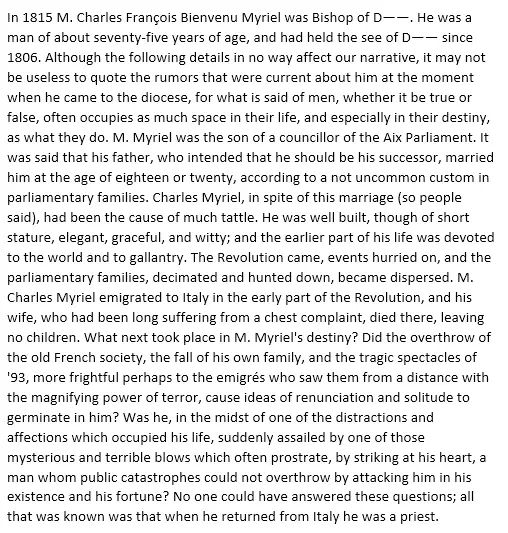
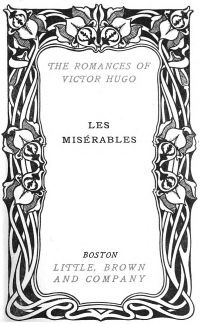
Get the Gutenberg Wraxall translation of Les Miserables
Volume One. Available FREE for download from Gutenberg.org.
Available as an ebook.

Get the Gutenberg Wraxall translation of Les Miserables
Volume Two. Available FREE for download from Gutenberg.org.
Available as an ebook.

Get the Gutenberg Wraxall translation of Les Miserables
Volume Three. Available FREE for download from Gutenberg.org.
Available as an ebook.

Get the Gutenberg Wraxall translation of Les Miserables
Volume Four. Available FREE for download from Gutenberg.org.
Available as an ebook.

Get the Gutenberg Wraxall translation of Les Miserables
Volume Five. Available FREE for download from Gutenberg.org.
Available as an ebook.
About the A.F. translation of Les Miserables
Look, seriously, nobody reads this one anymore. You wanna know why?
- The translation is a pirated adaptation of the Wilbour translation produced in Richmond, Virginia by West and Johnston for a Southern audience. Publishers in the Confederacy chose to ignore Union copyright.
- Changes to the text were made for political reasons. The translator edited out passages that expressed disapproval of slavery.
- A special edition was produced specifically for Confederate soldiers, who subsequently began identifying with the downtrodden and calling themselves “Lee’s Miserables”.
- The first volume does actually render the French better sometimes. Olin H. Moore calls it “distinctly superior to Wilbour’s rendering”.
- The quality deteriorates. Moore says it becomes “increasingly dependent on Wilbour’s version, whil the war-time paper shortage resulted in longer and longer omissions”.
To learn more, read “How Les Miserables Became Lee’s Miserables”.
For example translations from Wilbour, Wraxhall, and A.F., see “Some Translations of Les Miserables” by Olin H. Moore.
Extract from the A.F. translation of Les Miserables
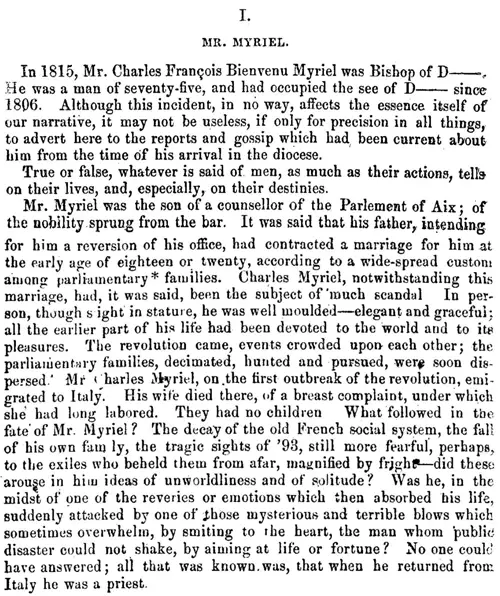
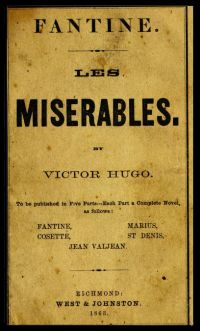
Get the Archive.org A.F. translation of Les Miserables
Part I. Available from Archive.org.
Available as a scan.

Get the Archive.org A.F. translation of Les Miserables
Part II. Available from Archive.org.
Available as a scan.

Get the Archive.org A.F. translation of Les Miserables
Part III. Available from Archive.org.
Available as a scan.

Get the Archive.org A.F. translation of Les Miserables
Part IV. Available from Archive.org.
Available as a scan.

Get the Archive.org A.F. translation of Les Miserables
Part V. Available from Archive.org.
Available as a scan.
“Who was Isabel Florence Hapgood?”
She was an American writer and translator. She was strongly religious, and worked on uniting different Christian denominations. She translated works by Tolstoy, Chekhov, and Dostoevsky, among others. She translated not only Les Miserables by Victor Hugo, but also Notre Dame de Paris and Toilers of the Sea.
About the Hapgood translation of Les Miserables
- This version is famous for its illustrations.
- It uses old-fashioned English.
- It perhaps renders the French badly sometimes.
- It contains 70 explanatory footnotes.
- Marva Barnett: “Which translation of Les Miserables do you recommend?” by Marva Barnett
“Very dated in its style and too often showing a true lack of understanding of French…. includes too many senseless renderings of Hugo’s French…. Many readers enjoy Hapgood’s translation.”
Extract from the Hapgood translation of Les Miserables
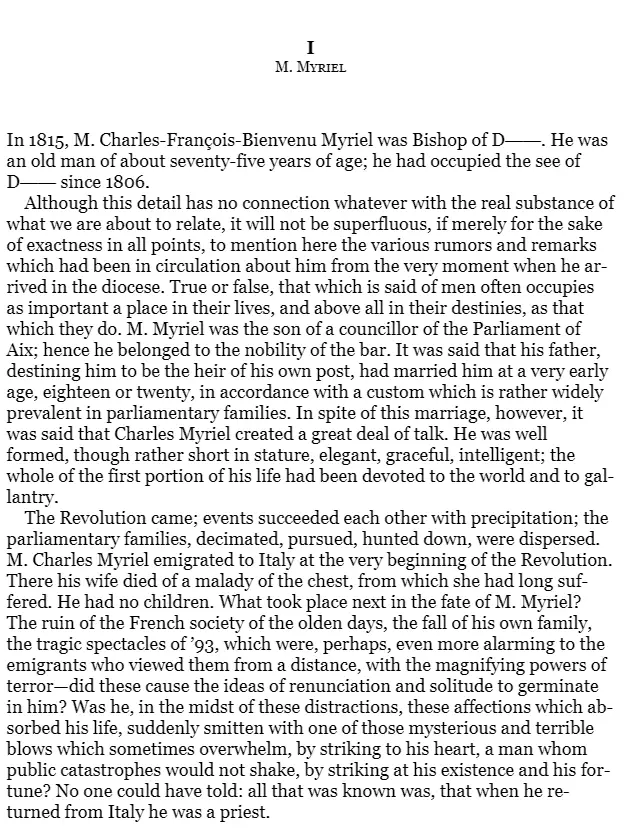

Get the Standard Ebooks Hapgood translation of Les Miserables
Free! Available in epub, Kindle, Kobo, and Advanced epub formats. Standard Ebooks are professionally edited, professionally designed versions of the Project Gutenberg texts.
Available as an ebook.

Get the Gutenberg Hapgood translation of Les Miserables
Free! Available in html, epub, Kindle, and plain text formats.
Available as an ebook.

Get the King's Classics Hapgood translation of Les Miserables
The table of contents indicates that there are endnotes. But it calls them footnotes.
Available as a paperback (ISBN 9781774370377, 1172 pages).

Get the Canterbury Classics Hapgood translation of Les Miserables
Has a bonded leather cover, a ribbon bookmark, and gilt edges.
Available as a hardcover (ISBN 9781626864641, 1264 pages).
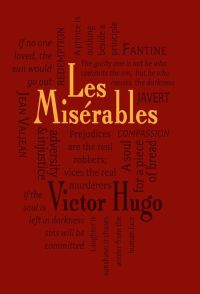
Get the Word Cloud Classics Hapgood translation of Les Miserables
Features: clean, modern aesthetic, flexible vinyl covers, specially-designed endpapers, foil-stamping, cute size (5.25″ x 7.75″).
Available as a flexibound book (ISBN 9781607108160, 1272 pages).
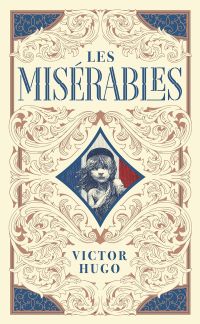
Get the Barnes & Noble Collector’s Library Hapgood translation of Les Miserables
Bonded-leather cover with gilt decoration on cover and edges. Cover art and endpapers by Spencer Charles. Ribbon bookmark. From what I've seen online, the book doesn't state that this is the Hapgood translation, but (some of) the chapter titles match. I'm going to guess it's unabridged but with small font and tight line-spacing.
Available as a hardcover (ISBN 9781435163690, 928 pages).
“Who was Norman Denny?”
He was a British writer and translator.
Biography of Norman Denny at TomFolio.
About the Denny translation of Les Miserables
This edition is mostly complete, which is to say, somewhat abridged.
- A compromise between the original text and modern English; less a literal translation than a translation in the spirit of the original. Omits some short passages and shortens some sentences.
- Moves two chapters to the back as appendices. The chapters are Part 2, Book 7 and Part 4, Book 7.
- Marva Barnett: “Which translation of Les Miserables do you recommend?” by Marva Barnett
“[S]ome sentences are shortened or simplified, some paragraphs eliminated, and Hugo’s provocative section on slang and the criminal world (IV, 7, 1-4) shunted off to an appendix.” - NPR: “The Art of Translation” by Rick Kleffel
“Rose consulted Denny’s text only after she began work on her own translation and was amazed by what she calls Denny’s ‘contempt’ for Hugo.” - Tumblr: “What’s wrong with Norman Denny” by anonymous user
This reader is offended at Denny’s changes, his justifications for them, and his inconsistencies. And it seems he or she is not alone.
I’ll be honest, I get bad vibes from Denny’s introduction. He seems to have approached the job of translating Les Miserables with the idea that not just the previous translators’ work but also Hugo’s work desperately needs to be improved upon. So in addition to moving two sections to the back, he abridges whatever he thinks is too long-winded because he’s worried that otherwise you’ll get bored and fail to sense Hugo’s spirit.
This foreword is unavoidable if the reader is to know exactly what he is getting – not a photograph but a slightly modified version of Hugo’s novel designed to bring its great qualities into clearer relief by thinning out, but never completely eliminating, its lapses.
If you’re thinking of buying Denny’s translation, read his introduction first and make sure you’re happy with his approach.
Extract from the Denny translation of Les Miserables
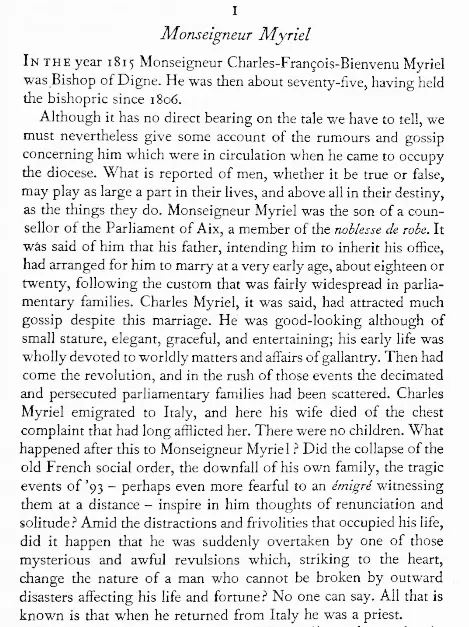
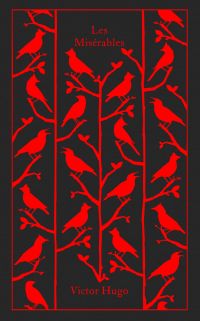
Get the Penguin Clothbound Classics Denny translation of Les Miserables
Includes an introduction by the translator, scattered footnotes, and two chapters converted into appendixes. Cover design by Coralie Bickford-Smith.
Available as a hardcover (ISBN 9781846140495, 1232 pages).

Get the Penguin Denny translation of Les Miserables
Includes an introduction by the translator, scattered footnotes, and two chapters converted into appendixes.
Available as a paperback (ISBN 9780143123590, 1232 pages).
“Who are Lee Fahnestock and Norman MacAfee?”
Lee Fahnestock is a translator and critic. She has been honored by the French government for her services to French culture. Norman MacAfee is a writer and artist. Fahnestock and MacAfee also worked together to translate the letters of Jean-Paul Sartre.
About the Fahnestock and MacAfee translation of Les Miserables
I feel like this edition is a good compromise between “time-tested” and “modern”.
- It has sold well over a million copies.
- It is the official musical tie-in edition; thus the familiar, unchanging Cosette/Flag logo on the cover.
- It is the reason fans call Les Miserables “The Brick” (that’s the size and shape of the paperback edition).
- It is a complete translation, with the authors digressions left in place. (The 1976 translation had moved and removed some text.)
- It is based on the Wilbour translation and retains an archaic flavor.
- It is considered faithful to the French original but more accessible in that it updates the language in places and removes untranslated French words and passages that would frustrate those with no knowledge of the language.
- Includes an Introduction by Lee Fahnestock and an Afterword by Chris Bohjalian. It does not contain any notes.
- Marva Barnett: “Which translation of Les Miserables do you recommend?” by Marva Barnett
“This edition contains a few errors of translation and more than a few moments in which I had to turn back to Hugo’s original.”
Extract from the Fahnestock and Macafee translation of Les Miserables
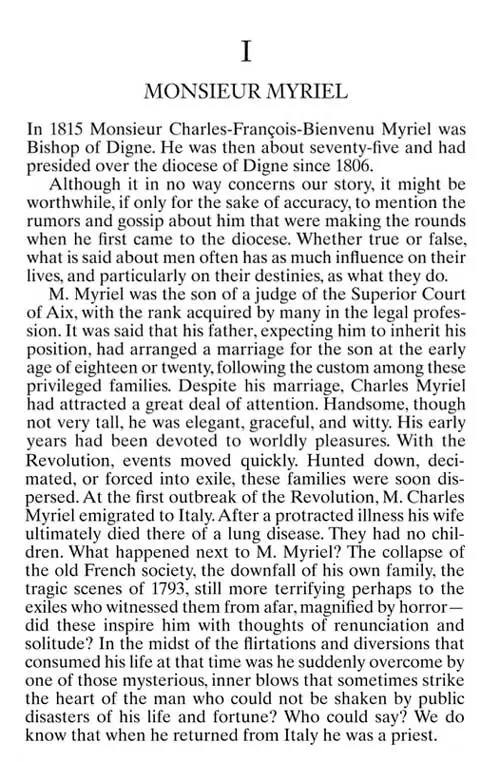
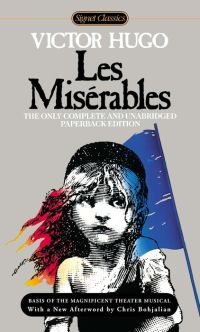
Get the Signet Classics Fahnestock and MacAfee translation of Les Miserables
Includes an introduction by Lee Fahnestock and an afterword by Chris Bohjalian.
Available as a paperback (ISBN 9780451419439, 1488 pages).
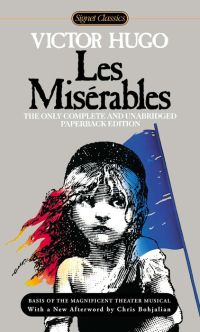
Get the Signet Classics Fahnestock and MacAfee translation of Les Miserables
Includes an introduction by Lee Fahnestock and an afterword by Chris Bohjalian.
Available as an ebook (ISBN 9781101637777, 1488 pages).
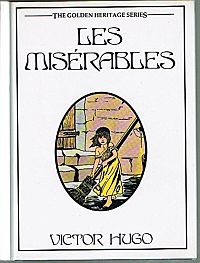
Get the NAL Fahnestock and MacAfee translation of Les Miserables
Out of print! Try searching for a second-hand copy using the links below.
Available as a hardcover (ISBN 9780861366545).
“Who is Julie Rose?”
She is a translator of French. She has translated works by Racine, Moliere, Emile Zola, and Alexandre Dumas as well as Victor Hugo. She has also taught French language and literature and served as an interpreter in Paris. In 2016 she was made a Chevalier dans l’Ordre des arts et des lettres by the French government. She loves to read crime fiction.
About the Rose translation of Les Miserables
It is “The world’s first fully original, unexpurgated English translation of Les Miserables” because (presumably) the 19th-century translations edited out some things from delicacy, and Denny’s version in 1976 was edited down, and Fahnestock and MacAfee started their complete and unabridged translation using Wilbour’s. So even though it’s the seventh version, it’s also the first.
The text has been aggressively modernized, which is not to my taste. It has been characterized as slangy, wild, and not closely following the original. However, unlike the Fahnestock and MacAfee edition, it contains a lot of additional background information.
- Marva Barnett: “Which translation of Les Miserables do you recommend?” by Marva Barnett
“I find that her translation is often fairly distant from my understanding of Hugo’s original work. This edition includes helpful detailed historical, cultural, and literary notes by James Madden. - Beatrice: “What Julie Rose Adds to Victor Hugo” by Ron Hogan
Julie Rose: “What I wanted to do was come up with a Hugo for our time—by staying absolutely true to Hugo…. It’s time we heard less about what is ‘lost in translation’ and more about what might actually be gained.”
Extract from the Rose translation of Les Miserables
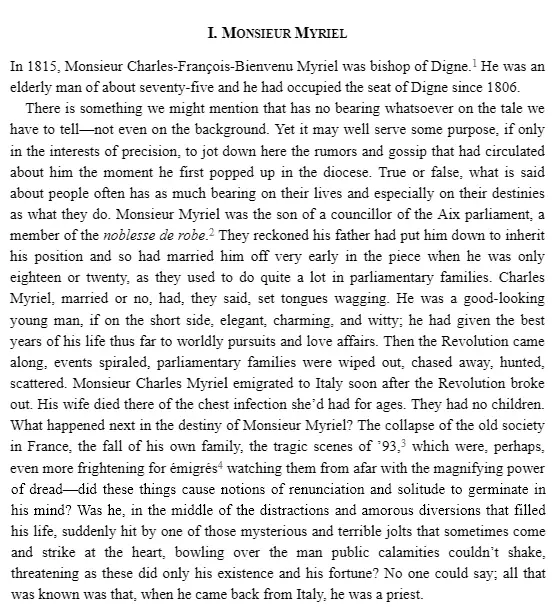
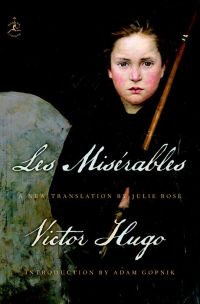
Get the Modern Library Rose translation of Les Miserables
Includes a biographical note, an introduction by Adam Gopnik, a translator’s preface, a chronology, an epitaph, endnotes, and a note about the translator.
Available as a hardcover (ISBN 9780679643333, 1376 pages).

Get the Modern Library Rose translation of Les Miserables
Includes a biographical note, an introduction by Adam Gopnik, a translator’s preface, a chronology, an epitaph, endnotes, and a note about the translator.
Available as a paperback (ISBN 9780812974263, 1376 pages).

Get the Modern Library Rose translation of Les Miserables
Includes a biographical note, an introduction by Adam Gopnik, a translator’s preface, a chronology, an epitaph, endnotes, and a note about the translator.
Available as an ebook (ISBN 9780812986556, 1376 pages).

Get the Vintage Classics Rose translation of Les Miserables
Includes an introduction by Adam Thirlwell.
Available as a paperback (ISBN 9780099529965, 1330 pages).
“Who is Christine Donougher?”
She is a British translator of works in French and Italian.
Biography of Christine Donougher at Dedalus Books.
About the Donougher translation of Les Miserables
I think I might enjoy this newest translation.
- This translation was originally titled The Wretched, but Penguin seems to have backed down from this decision in re-printings.
- Marva Barnett: “Which translation of Les Miserables do you recommend?” by Marva Barnett
Barnett says Donougher’s translation, her top recommendation, is “engaging, modern, and accurate”, and “[her] detailed historical, cultural, and literary notes greatly help readers understand Hugo’s many references.”
Extract from the Donougher translation of Les Miserables
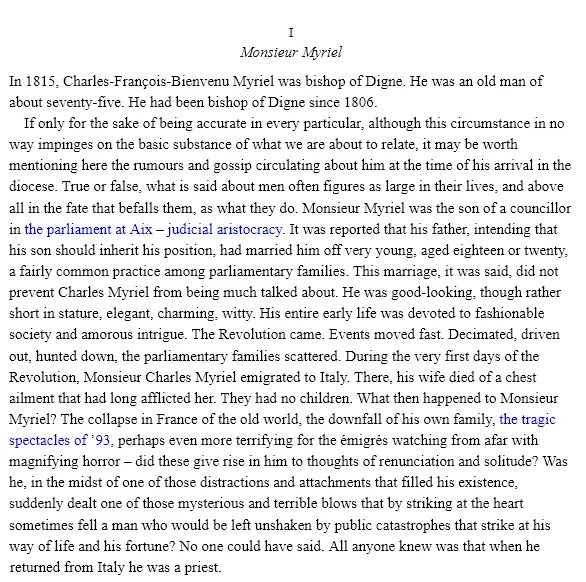
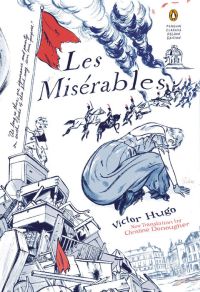
Get the Penguin Classics Deluxe Donougher translation of Les Miserables
Includes an introduction by Robert Tombs, a chronology, a list for further reading, a note on the translation, and endnotes. Penguin Classics Deluxe editions have a “deckle” edge (rough paper at the side) and the paper cover has two extra flaps that folds in at the front and at the back kind of like a dust jacket would.
Available as a paperback (ISBN 9780143107569, 1456 pages).
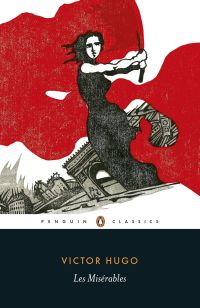
Get the Penguin Classics Donougher translation of Les Miserables
Includes an introduction by Robert Tombs, a chronology, a list for further reading, a note on the translation, and endnotes.
Available as a paperback (ISBN 9780241248744, 1456 pages).
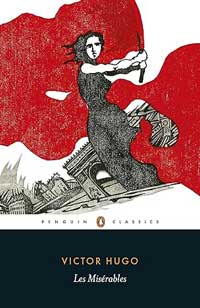
Get the Penguin Classics Donougher translation of Les Miserables
Includes an introduction by Robert Tombs, a chronology, a list for further reading, a note on the translation, and endnotes.
Available as an ebook.

Get the BBC Books Donougher translation of Les Miserables
Includes an introduction by screenwriter Andrew Davies. Seems to be out of print.
Available as a paperback (ISBN 9781785944000, 1328 pages).
Study Guides for Les Miserables
Shmoop study guide for Les Miserables

Get The Novel of the Century: The Extraordinary Adventure of Les Miserables by David Bellos
“Bellos condenses tranches of research into a gripping tale about Victor Hugo’s masterpiece.” ―Nina Martyris, The Paris Review
Read the review in the New York Times.
Available as a paperback (ISBN 9780374537401).

Get The Novel of the Century: The Extraordinary Adventure of Les Miserables by David Bellos
“Bellos condenses tranches of research into a gripping tale about Victor Hugo’s masterpiece.” ―Nina Martyris, The Paris Review
Read the review in the New York Times.
Available as an ebook.
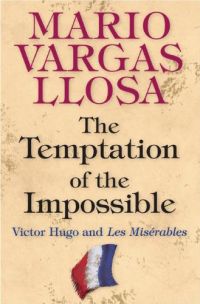
Get The Temptation of the Impossible by Mario Vargas Llosa (translated by John King)
“Mario Vargas Llosa, helps us to appreciate the incredible ambition, power, and beauty of Hugo’s masterpiece and, in the process, presents a humane vision of fiction as an alternative reality that can help us imagine a different and better world.” ―Princeton University Press
Available as a hardcover (ISBN 9780691131115).

Get Victor Hugo: A Biography by Graham Robb
“Both necessary and highly readable, and easily outclasses all existing Hugo biographies in English.” ― New York Times Book Review front-page review
Available as a paperback (ISBN 9780393318999, 720 pages).
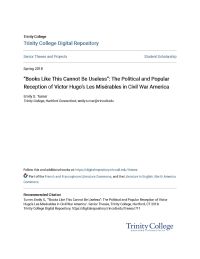
Get “Books Like This Cannot Be Useless”: The Political and Popular Reception of Victor Hugo’s Les Miserables in Civil War America by Emily S. Turner
In her 116-page Senior Thesis for Trinity College, Hartford, Connecticut, Turner concludes: “The story of Les Miserables, whether in the form of a novel, a play, or a musical, has helped Americans come to terms with violence and uprising during the most turbulent times in the nation’s history.”
Available as a file.
There is no one best translation. I think we can all agree that the “A.F.” translation is the worst, though!
If you’re looking for an unabridged translation, I think the unabridged 1987 Signet Classics Fahnestock/MacAfee translation is a good compromise between “tried and tested” and “modern”.
For an edition with helpful notes, I would definitely choose Donougher over Rose.

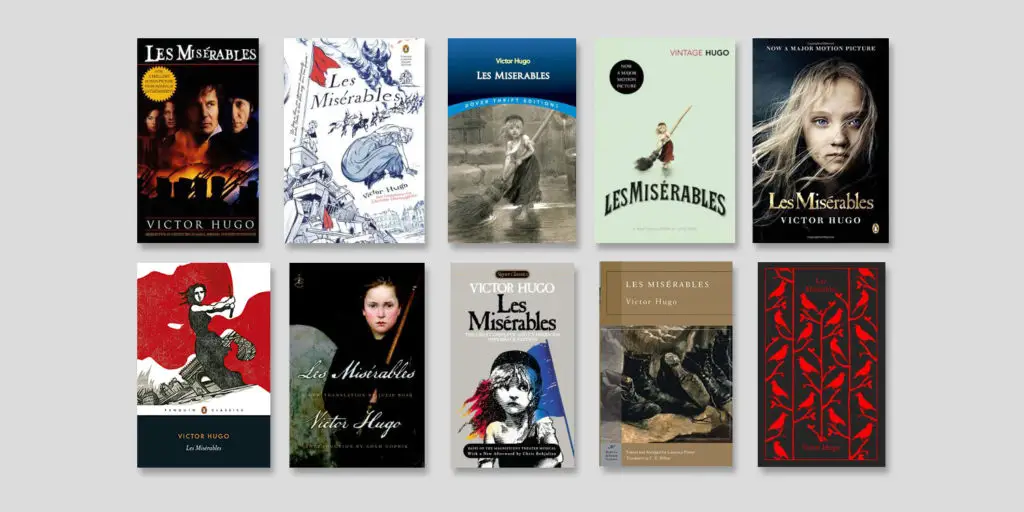
This is a very interesting and useful discussion. I am inspired by having read Stephen Mitchell’s excellent translations of The Iliad and The Odyssey. I am heading toward Les Mis and plan to read Hapgood mainly because of availability free through Apple Books. I will try to share my experience later.
Many thanks,
John Mitchell
I love that you have made this comparison! This may be a silly question, but why is Denny the only one who uses Monseigneur for Myriel? I’m assuming this is his original title? It’s of course not a big thing, but I feel like it may signal something about the translation.
Personally, I read Denny years ago (the nice hardback copy with the red birds). As a big Les Mis fan, I’ve also picked up a couple of other beautiful editions over the years, but they’re sadly both Hapgood ones, which I’m not so keen to read. I’d like to do a re-read now, and I think I’ll go with Donougher based on yours and Marva Barnett’s recommendations. Thanks again for your work!
Thanks for the positive feedback, Ingvild! I don’t know why Denny is the only one who uses Monseigneur for Myriel. It does seem to be the correct title. The English Wikipedia page calls the character Bishop Myriel first, but also calls him Monseigneur Bienvenu, and says Hugo used “Monseigneur”. When I googled, the results said Monseigneur is “a title or form of address used of or to a French-speaking prince, cardinal, archbishop, or bishop.” Maybe the other translators didn’t use “Monseigneur” because they assumed we wouldn’t easily understand the rank it signifies, whereas “Bishop” would be more familiar. If anyone else has ideas about this I’d love to hear them!
The Julie Rose translation is fantastic. It brings across a spirit and humor I find lacking in other translations. I feel like we get far more of Hugo’s rollicking narrator personality. Highly recommend. I devoured the book.
Penguin Classics are cowardly, in retitling this translation.
Is there by chance you’ll cover Gaston Leroux’s The Phantom of the Opera and Maurice Leblanc’s Arsene Lupin stories? I enjoy the Lowell Bair and David Coward translations for Leroux’s Phantom.
Thanks, I’ll add these to my big offline to-do list!
I read Phantom of the Opera twice, but I didn’t write down which translation(s) I read. There’s a public domain one online at gutenberg, and that’s one of the ones I read, but it doesn’t say who the translator was.
I’m not familiar with the Arsene Lupin stories. I just read The Complete Sherlock Holmes; in it, Holmes compares himself to Edgar Allen Poe’s Dupin and Gaboriau’s Lecoq, but not Lupin. Lupin must have been one of those characters who came along afterwards.
Forgive me for the belated reply!
The most well-known public domain translation (especially the one at Project Gutenberg) is by Alexander Teixeira de Mattos back in 1911 and apparently, he made a slash-and-burn abridged attempt at the original novel. Because it is out of copyright, publishers are not obligated to credit de Mattos for his work.
The ones I personally like are the one by Bantam from 1991 by Lowell Bair (it is the one with the blue cover with Phantom and Christine on the boat, most reminiscent of the hit musical), and the ones from 2012 by both Mireille Ribière for Penguin Classics and (her edition includes a pages worth of wonderful footnotes, which are worth reading), and by David Coward for Oxford Press.
I have one by Leonard Wolf that was translated and published in 1996, but I didn’t take a look at it. Jean-Marc and Randy Lofficier published another translation in 2004 (mostly to coincide with the film adaptation of the stage musical).
Links to the translations I’ve mentioned:
The original unabridged French novel: https://www.amazon.com/Fant%C3%B4me-lOp%C3%A9ra-Ldp-Policiers-French/dp/2253009504
Lowell Bair: https://www.amazon.com/The-Phantom-Opera-Bantam-Classics/dp/0553213768
Leonard Wolf: https://www.amazon.com/Essential-Phantom-Opera-Gaston-Leroux/dp/0743498364
Jean-Marc and Randy Lofficier: https://www.amazon.com/The-Phantom-Opera-Illustrated-Unabridged/dp/1932983139/
Mireille Ribière: https://www.amazon.com/The-Phantom-Opera-Penguin-Classics/dp/0141191503/
David Coward: https://www.amazon.com/Phantom-Opera-Oxford-Worlds-Classics/dp/0199694575/
The Lost Chapter by Caitlin Freeman: https://www.amazon.com/The-Phantom-Opera-Lost-Chapter/dp/1494798433/
———–
There’s a new translation in the works by Caitlin G. Freeman (author of “The Phantom of the Opera: The Lost Chapter “, which is the chapter that was cut out of the French publication of the novel in 1910. It was originally published for the Parisian newspaper, Le Gaulois, in 1909), and Phantom’s Theater. Phantom’s Theater’s translation will come out in 2026. More info on that can be found here:
https://phantomstheater.weebly.com/new-translation.html
Wow, this is really useful! Thanks for sharing this information, John!
This great novel really needs a new English translation. It has 2 draft versions, both titled “Misères” (1845-48) that are still untranslated in English. According to Wikipedia, the novel was “initially begun as Les Misères. 7 chapters from Book 7 of Part 3 were excised by Albert Lacroix at the time of publication. None of the English translations include the excised chapters but some French editions include them as Appendix or in Notes.”
So there are lots of untranslated materials that we English readers don’t have access to yet like the French readers do.
Thank you, this is helpful. Wow, it’s complicated. It might be easier just to learn French. 😉
I wish I had seen this before reading it. Now I’m not sure which translation I read. I may have sold it in one of my (regrettable) purges when I was needing money. This was one of those books that I can say I enjoyed having read it… but the actual reading of it was a struggle at times. His “digressions” are maddening. For the love of humanity, I don’t need that much detailed description and history of this and that street! Get back to the plot before I forget what’s going on!
As much as I hate abridgements and think they’re an insult to the author, this is one case where I may be willing to try it as my second read-through. I really do love the story and characters. I wish I had the discipline to actually learn French so I could read the original. Alas, I am too lazy and too old for that to be a realistic goal.
Thanks again. I will bookmark this for reference.
Thanks for your feedback and for sharing about your experience! If you want to learn a bit of French, you could attempt a shorter classic. The Little Prince is a much more manageable length and still very rewarding. 🙂
I have been reading the Denny translation, and then listening to the Donougher translation (available on audiobook), while looking over the Denny translation again. Doing this side by side for 800 pages (so far), I have a couple of observations.
Hugo will go for 17 adjectives, Denny sometimes scales this back to seven or so, Donougher goes whole hog, 17 means 17. The Donougher translation of a sentence when overlaid over Denny’s translation can seem like a blanket over of litter of puppies. You can see the underlying chaotic energy trying to wriggle from under the covers.
Denny can clarify in his translation. Donougher will give you something like: “[Name] and [Other Name] divided Paris between them. Denny will give you “[Name], famous criminal and [Other Name], famous police detective divided Paris between them.
I felt that Ms. Werts had some reservations about the Denny translation. I have fewer reservations, but I must concede that Donougher’s translation is an improvement over Denny.
Wow, you are really dedicated to reading Hugo, and this is a great comment! Thank you for contributing your observations. 🙂
I bought an 1862 – Charles E. Wilbour Everyman’s Library hardcopy with ribbon version that I like very much and I’ve found to be an easy read if you love classics like the English that’s found in the greatest novels of all time like “Middlemarch” or works by Austen or the Bronte Sisters. If you can read and enjoy those then I don’t see why the WIlbour version should be that much more difficult or onerous to read and enjoy. I think too many “modern” readers look for the easy way out and prefer “modern” English because they don’t want to put in the work I’ve recently read Lydia Davis’ “Swann’s Way” but is it really superior to the latest Moncrieff-Kilmartin edition just because the former is a more “modern” translation? I agree with Lucy Day that you should look and choose a translation that suits you instead of relying on other’s opinions on the internet. I’ve read “Karamazov” twice and in different translations and I intend to revisit this a third time in a different translation and I’m sure I’ll find differences but that doesn’t make one version clearly superior to another unless off course there are clear deficiencies like in the source matter for example. Anyway I guess I’m saying don’t assume the latest translation of Les Miz is the best just because everyone says so because I’m thoroughly enjoying my version and so far I can find little if anything to complain about.
Greetings, just to ask, are you certain that the Macmillan Collector’s Library edition utilizes Wilbour’s translation; I ask for I compared both and found them to be greatly contrasting each other, unless Douglas Gordon Crawford edited far more than entitled, into the extent of re-writing. Could this editor have done such?
~Waz
Thanks for your question! It is certain that the 1915 Macmillan version was “abridged and edited” by Douglas Gordon Crawford based on one of the earlier translations (he did not do a new translation from French himself). When I compared a bit of text from the beginning of the novel, I decided that the Wilbour translation is the translation that the Macmillan version most resembles. But as you observed, Crawford’s text is quite different. So the “editing” he did was not just cutting the chapters that people sometimes say are not related to the plot. Crawford clearly did some rewriting in the chapters he kept. I think that’s fairly common, and it’s a big reason people don’t like abridged versions.
Which translation did the British publisher J.M. Dent use in their 1910 and 1930 editions? Wilbour and Hapgood seem to be the two main possibilities with Wilbour the likelier one.
Hi Daniel,
I found a two-volume J.M. Dent edition at HathiTrust, published in London in 1909 and reprinted in 1913. It was translated by Wilbour. Worldcat is also listing Dent editions up to the 1960s credited to Wilbour. It looks to me like your guess is correct. = )
Bottom line: No full-text, multi-volume hardcover editions at any price, more’s the pity. If you want it in two volumes, the only choice seems to be Wilbour, Wordsworth ed. At least you could read it lying back in bed without fear of a nosebleed if you drop it.
The Hapgood translation comes in at least one hardcover version. But a multi-volume hardcover version, no, I guess there isn’t one! Interesting idea for a future reprint.
Heritage Press (Wraxall) and Folio Society (Denny) both published 2 volume editions…
Yes, I am seeing second-hand copies of both of these out-of-print editions on abebooks and ebay. Thanks for this info, Jon!
There’s also currently a few more two-volume sets available *new* from Easton Press ($336). I’m not sure which translation they’ve used.
Very helpful and complete.
Thank you very much for your recommendations! Certainly saves the patient reader much time and money. You’re a great scholar.
Thanks for your kind feedback, Paul!